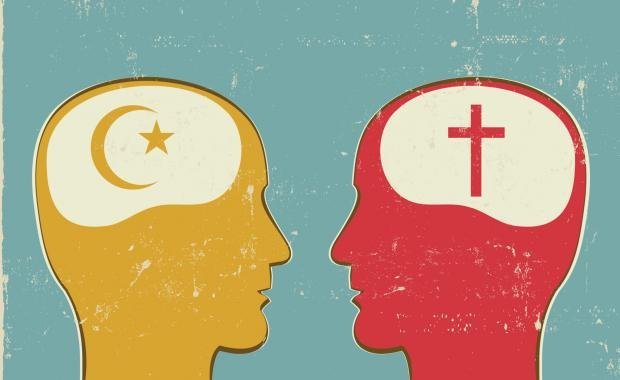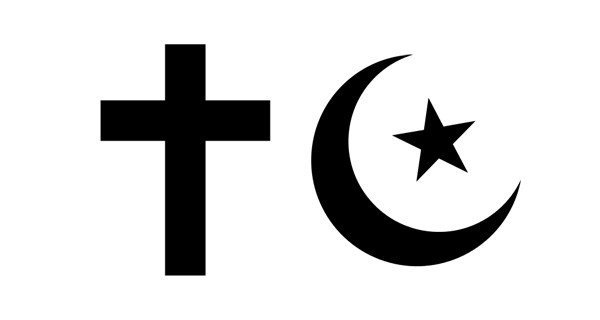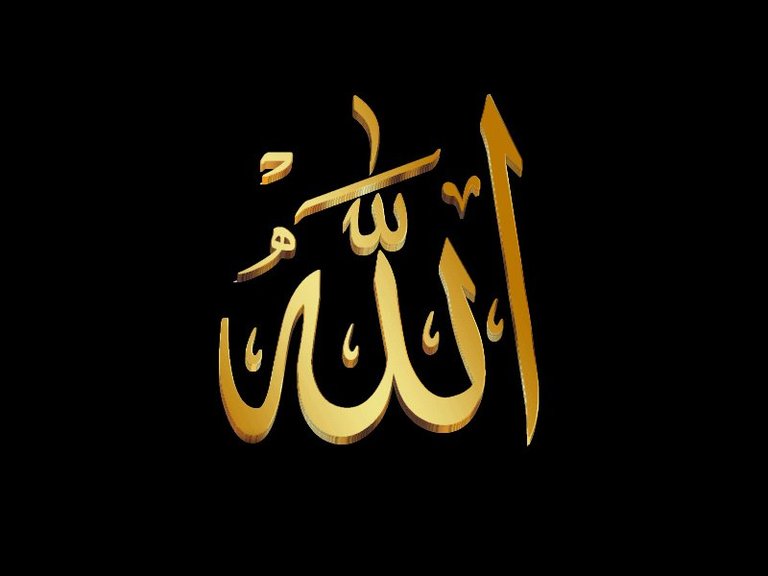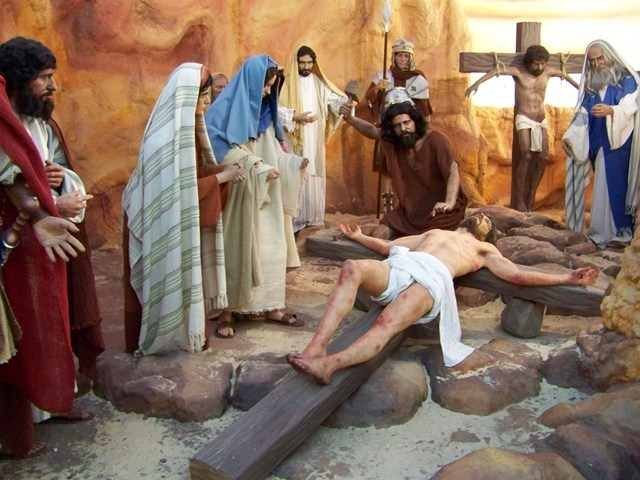
Christianity and Islam have more in common than most people believe or know. These are two monotheistic Abrahamic religions, and Jesus Christ is an important figure, venerated in both religions.
The followers of Christianity, called Christians, believe in the Holy Trinity, and that Christ, the son of God, walked on earth as the incarnate form of God ("Father"). Most Christians also believe that Christ will return at the end of the world. On the other hand the Muslims (followers of Islam) consider that Jesus Christ was only a prophet, a messenger of God, and a messiah. However, they believe that Muhammad was the last prophet and that he recorded the literal word of God in the Koran.

In many ways, Christianity and Islam were radical for their time, often preaching tolerance, respect and equality between different races and classes, despite rigid monotheism. This initial progressive nature gave rise to considerable persecution. Primitive Christianity and Islam spread through exploration, commerce, missions, war and colonization. According to the New Testament, Jesus Christ had a number of followers before his execution on Golgotha, but the concept of Christianity as a religion did not really exist until after his crucifixion, when his most ardent followers, such as the Roman Apostle Paul, He began to write and talk about Christ and the miracles performed.
Christianity acquired many of its terms and beliefs from paganism, Hellenistic Judaism and the Greco-Roman religions that were dominant at the earliest times and places of Christianity's development. The Roman Empire, with its common language and crossing large tracts of land, helped to spread Christianity, especially after Emperor Constantine (around the year 300) converted to religion, ordered the construction of the Church of the Holy Sepulcher, and approved the cross for the flags of his army.
At the time when Islam was formed was in the year 622 CE, Roman Catholicism, the most common form of Christianity, already had its 69-Pope Boniface V. In Mecca, in the Arabian Peninsula, where Islam began It was not a crucible of faith that included Jews, Christians, Zoroastrians, and those who worshiped Mesopotamian gods. It was at this time and place that Muslims believe that Muhammad was visited by the angel Gabriel and said to start writing the word of the one true God, Allah.

Jesus Christ, son of Mary is, of course, the most important and homonymous figure in Christianity. Christians believe that Jesus was the son of God, and that together with God and the Holy Spirit, Jesus is part of the Godhead, or Holy Trinity. The Christian belief is that the mother of Jesus Mary was a virgin, that Jesus died when he was crucified, and that he rose again on the third day after his death. Several of these beliefs about Jesus are shared in Islam. Muslims also believe in:
-The virgin birth.
-That Jesus Christ could (and can not) do miracles.
-The second coming of Jesus during the apocalypse.
Where Islamic beliefs differ about Jesus is that Muslims believe that Jesus, although he was crucified, died, but never really ascended to heaven. God raised Jesus to himself. Because Jesus never died, Muslims do not believe in the resurrection.
